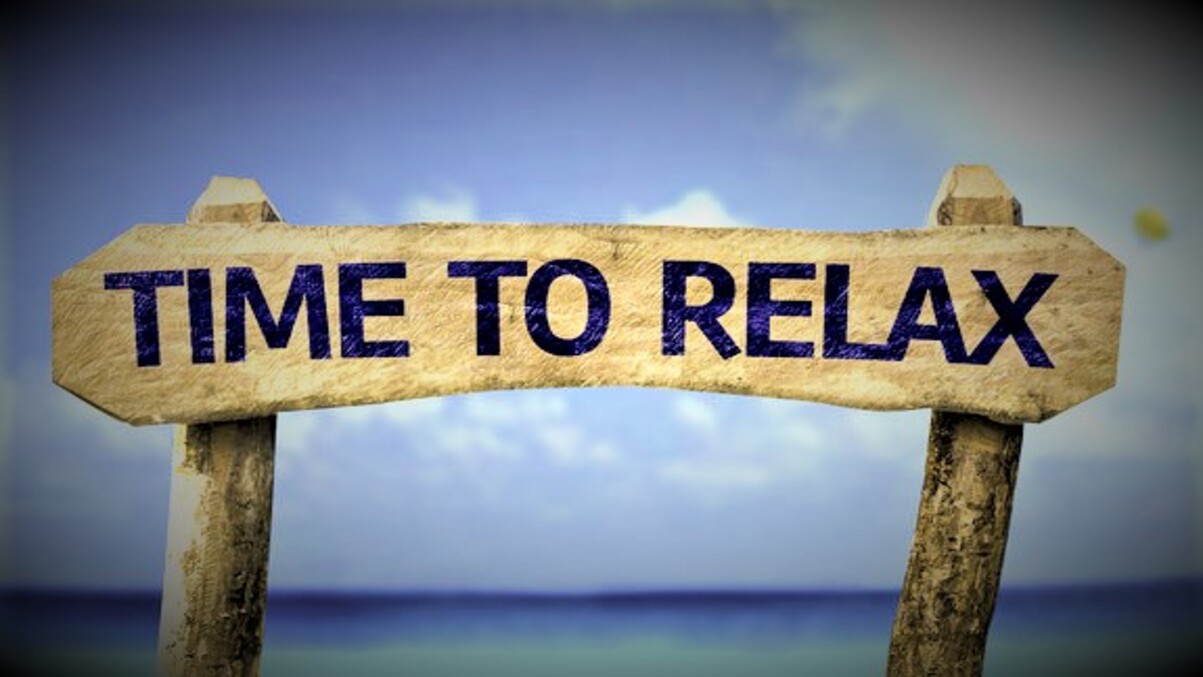Why it’s crucial to unwind
There’s no denying that living in the contemporary world may be difficult. Making time for oneself can be challenging when you have family, friends, and job duties. But making the time is crucial.
As you recover from the daily demands of life, relaxing can help you maintain your physical and mental health. Fortunately, no matter how busy you are, learning how to carve out time for relaxing and rest effectively is easy.
Simple methods to unwind
The simpler the relaxation techniques, the better! You can easily include a quick relaxation technique into your day if you set out five minutes for yourself. Here are some simple methods for unwinding:
Let the air out
One of the most straightforward relaxation techniques is breathing exercises, which can be used at any time or place to calm your stressed-out body and mind. Put one hand on your belly and sit or lay down in a peaceful, secure location, like your bed or the floor at home. Slowly count to three as you inhale, then slowly count to three as you exhale. As you breathe in and out, feel your tummy rise and fall. Repeat five times, or for however long you require to relax.
Relax your body’s tension
We frequently experience physical and mental stress when we are under pressure. Your body and mind will both feel less stressed if you can release any physical tightness. Consider your bed, a carpet, or a yoga mat a soft surface to lay on. One body part at a time, tense up, and then progressively relax your muscles. Take note of how your body feels while you do this. Purchase a yoga mat
Make notes of your ideas
By putting out your thoughts, you may find it easier to unwind. Take a few minutes to jot down some brief notes about how you’re feeling or how your day is going while you’re feeling pressured. You may write this down in a notepad or a smartphone note-taking app. Don’t stress about using beautiful language or using the perfect spelling. To relieve some of your tension, concentrate on being yourself. Purchase a journal.
List everything
Some people find that writing down your blessings might make them feel more at ease. According to experts, when we’re under stress, we tend to concentrate more on the negative aspects of life than the positive ones.
You could find that writing down and reflect on the good aspects of your life will help you relax. Even if they are minor things like arriving at work on time or enjoying a nice lunch, try to recall three pleasant things that occurred to you today and write them down. Purchase a thankfulness journal.
Imagine being at ease
Have you heard the saying “find your happy place” before? Consider a location in the globe where you feel the most at peace while you sit in a quiet, secure area, such as your bedroom. Close your eyes and try to picture every aspect of that location, including the sights, sounds, smells, tastes, and tactile sensations. Think about the beach, for instance, and you might picture calm waves, children playing on the sand, sunscreen sound, the flavor of excellent ice cream, and the feel of grit beneath your feet. The more immersed you become in your visualization, the easier it is to unwind.
Spending even a short while in nature may help you unwind when you’re feeling stressed. Step outside and take a quick walk or relax in nature when you’re feeling anxious. However, you don’t have to be in heart to benefit from its stress-relieving properties. Researchers have discovered that viewing pictures of greenery and nature for five minutes on a computer screen will help you decompress.
Relaxation is crucial for children and teenagers as well as adults. Help your child with these exercises if you feel like they need to unwind. Better yet, participate with your youngster in these simple relaxing techniques. Your child’s self-control and relaxed conduct may benefit from this.
THE BENEFITS OF RELAXATION
The capacity to decide more wisely and more logically a more remarkable ability to withstand stress in the future an improved perspective on life and your experiences a healthy body that has lower blood pressure, more relaxed muscles, and slower breathing a lower chance of having a heart attack, getting an autoimmune disease, having mental health issues, and getting other illnesses linked to stress
RISKS OF EXCESSIVE STRESS
Body aches and headaches regularly sleep issues like nightmares or insomnia confusion and forgetfulness heart issues and chest pain Stress-related illnesses frequently result in weight gain or loss and an increase or decrease in appetite.
Lonely and isolated from others, increasing drug, alcohol, and tobacco use weeping fits, depressive sensations, and occasionally suicidal thoughts loss of concern for appearance and punctuality heightened anger and excessive retaliation to minor irritations ineffectiveness at job or un school


